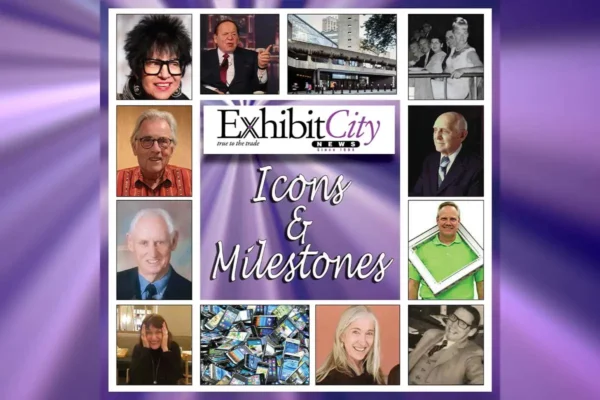Who is in charge of your career? Are you in control of where it’s going or are you just along for the ride? Have you ever thought of whether you had a job or a career? And what the difference might be?
About 30 years ago when I graduated from college, I interviewed for and got a job at McDonnell Douglas Corporation (now Boeing) in St. Louis. I still remember the day I told my dad. He was so proud. You see, if you grew up in St. Louis, you aspired to work for either “Uncle Augie” (August A. Busch Jr.) at Anheuser-Busch or “Mr. Mac” (James S. McDonnell) at McDonnell Douglas. Dad figured I was set for a life-long career.
That was pretty much the mode of operation in career planning. Then, get out of school, get a job with a “good company” and retire there. It was a time characterized by loyalty, longevity and a gold watch.
That all changed for me in 1991 when my division was sold to Electronic Data Systems, then a part of General Motors. It changed again in 1993, when my department reorganized and I “outsourced” myself.
If the late 80s and early 90s were the beginnings of the consolidation/acquisition era in career planning, then the last decade or so was the era of “morals-be-damned, show-me-the-money” career planning. It was a period of “me first” attitudes, of making money at all costs, where career advancement was measured by your title and your compensation package.
However, when I look at the world of work today, I see something else. I believe people are seeking something different in their careers. Perhaps careers more characterized by these attributes: Being part of a team, achieving personal satisfaction, contributing to the success of a company/project/team and gaining personal and group recognition. Call it “being part of something significant.” This is what I have been hearing from job candidates recently.
I have a theory on why this change has occurred. Historically, family has played a very important role in human life. Generations of farmers worked the same land. Parents handed their businesses down to their children. Children married and lived in the same communities as their families. Not so any more.
Today, our jobs may take us anywhere in the world and far away from close family and friends. So where do you find those kinds of “family” relationships, and the satisfaction and significance that comes with it? I believe many people are looking for those kinds of attributes in their careers.
With that in mind, let me ask you the same question I asked above, in a little different way: Are you in charge of your career experience? Have you ever thought of your career as an experience? What if you thought of your career as a 40-year-long experience? Who would you want to be in charge of that experience?
There’s a great book out there called “The Experience Economy: Work is Theatre & Every Business a Stage,” by Joseph Pine and James Gilmore (Harvard University Press, 1999). It talks primarily about how our economy has grown and changed over the last 100 years from being based on commodities to goods to services to “experiences.” The theory behind the premise of the book can be applied to career planning.
The authors suggest that every experience is based on a theme. The “experience” of your career can be broken down by using the word THEME as an acronym:
T – Theme your career: Is there a theme to your career? Another way of saying it: Do you have a plan or method for what you are doing now, and what you want to be doing in 2, 5, 10 years? Or are you hopping from job to job without much method to the madness? What if you did have a plan? What would it look like?
H – Harmonize impressions: What this says is “does everything you are doing in your current position fit with the overall theme of your career, is it part of the grand plan or are you temporarily sidelined? If you are, how can you get back on track? Remember, everything you do and every step you take should be done to support the plan.
E – Eliminate negatives: Can you change the negative aspects of your job into positives for your career? Are there parts of your current position that don’t fit the plan, but that can be altered in some way to bring you back into the plan? Or is it time to make a change? Negatives distract you from your mission. Being negative brings you, and everyone around you, down. Focus on positives.
M – Mix in memorabilia: Memorabilia is a tangible artifact of the experience. This is about recognition for your accomplishments. Whether it comes from you, your co-workers, your management or your industry, it is important to celebrate your successes and recognize your accomplishments. It helps keep you motivated to continue pursuing the plan.
E – Engage all the senses: Are you fully aware of what’s going on around you? Do you sense change coming before it comes? Do you sniff the air occasionally? Are you prepared for the change that will inevitably come? Take time to regularly evaluate your current position versus what’s going on around you. What’s happening in your department, your company, your industry, the economy? Also, do you take time to relish the smell of victory, to taste success and to learn from the agony of defeat?
It doesn’t really matter if you are in your first job out of school or are a life-long industry veteran, whether you are working in a large corporation, or running your own small business. What matters is that you have a plan, and that you are in charge of the plan. Are you deciding where you are going, or telling everyone where you have been? Perhaps it’s time to take charge of your career experience.
See you on the show floor.
Jim Obermeyer has been in the tradeshow industry 29 years, both as a corporate trade show manager and exhibit house executive. He is a partner in the trade show and event marketing firm Reveal. He can be reached at jobermeyer@revealexhibits.com.
| Home |
| People on the Move |
| National News |
| International News |
| Opinions |
| Tradeshow Calendar |





























